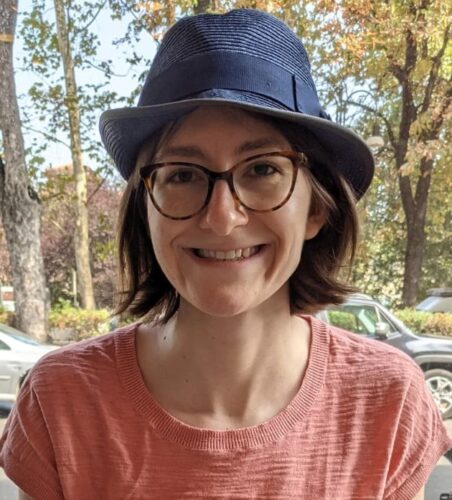
One of the central components of the American Physical Society (APS)’s mission is to share physics knowledge — and, since 2020, one way the association has done this is through partnering with Wiki Education to host a series of Wiki Scientists courses. In these courses, Wiki Education staff teach APS members — physicists — how to contribute to Wikipedia. Some courses have focused on improving Wikipedia’s coverage of physics topics, while others have focused on biographies of historically excluded physicists.
“In the APS Wiki Scientist courses, our members build their science communication and public engagement skills. They work on articles of notable women and historically marginalized groups in physics, increasing the visibility of these physicists. This helps expand the public perception of ‘who is a physicist’ and can promote broader participation in the discipline. They also contribute to articles on various physics topics, using their expertise to add information and supporting references. Articles with clear, accessible content help physics learners and can generate excitement for physics topics,” says Allie Lau, Public Engagement Programs Manager at APS. “Taken together, the contributions of APS members help develop Wikipedia content that accurately reflects the makeup of the physics community and the work of physicists.”

In the five courses to date, 84 APS members have added more than 109,000 words of content to 311 articles on Wikipedia. The physicists’ work has already been read more than 13 million times. For example, the nitrogen-vacancy center article edited by a participant in one of the courses has been read more than 58,000 times. From a biographies course, the new article on Qatari physicist Ilham Al-Qaradawi has been viewed more than 10,000 times. These examples showcase why these Wiki Scientist courses are helping advance APS’s mission. Participants report the courses are meaningful — and numbered among them is even a Nobel laureate!
In addition to supporting our overall partnership, Allie signed up to participate in the most recent Wikipedia course focused on improving biographies of underrepresented physicists. Since she has a background in physics education, Allie chose to expand the article on Lillian C. McDermott, a pioneer in the field.
“The course taught me the core pillars of Wikipedia editing and I learned about the neutral tone of voice to use in articles. I also learned about the guidelines for notability and verifiability,” Allie says. “Wiki Education provides our members with access to high quality training from expert Wikipedians who are also excellent teachers.”
Allie says she’d never used Wikipedia’s talk pages before taking the course. Understanding those helped Allie see the community of volunteer contributors who work tirelessly to keep Wikipedia the reliable source it is. Thanks to the course, Allie now feels comfortable participating in APS edit-a-thons and other Wikipedia events.
Overall, Allie says she enjoyed the course — and so did the members she took it with. APS routinely gets positive feedback from members who participate in the course, which leads them to keep partnering with Wiki Education to offer more courses. Up next is a Wikidata course, focused on improving the coverage of physics on the linked open data counterpart to Wikipedia.
Allie sees these Wiki Scientist courses, especially those focused on improving biographies of underrepresented physicists, to be an important part of APS’s strategy.
“A core part of the APS’s vision is to foster equity and inclusion in physics, and increase diversity in all its dimensions. When we improve the diversity of physicist biographies on Wikipedia, we are amplifying the voices and increasing the visibility of physicists from groups historically marginalized in the discipline,” Allie says. “This is important not only because it recognizes their contributions to the field, but also because it helps shift and expand the perception of who can be a physicist.”
She encourages APS’s peer academic associations who are also interested in improving representation in their discipline to consider partnering with Wiki Education to host courses.
“If other associations have the goals of fostering equity, inclusion, and diversity in their field, as well as increasing access to their discipline’s knowledge, Wikipedia is a great avenue to explore,” Allie says. “It is one of the most popular websites in the world and it is easy to contribute to.”
Interested in learning more about a Wikipedia or Wikidata course? Visit learn.wikiedu.org.
Image credit: PhysicsSphinx, CC BY-SA 4.0, via Wikimedia Commons
